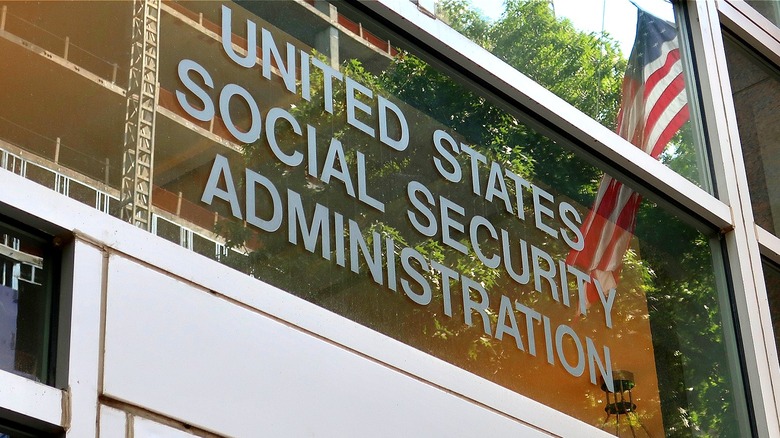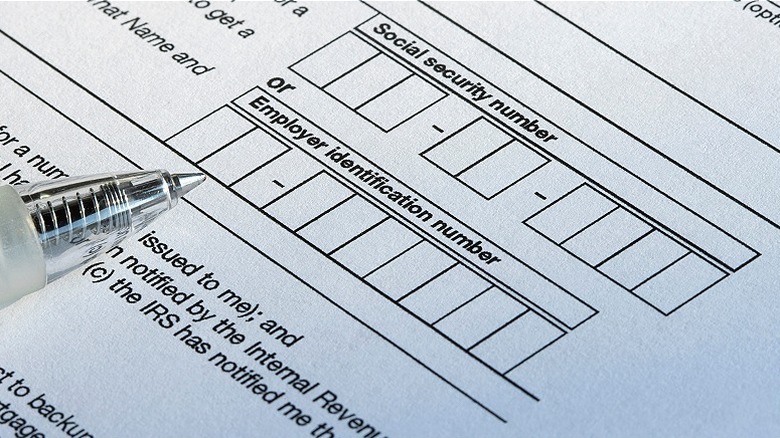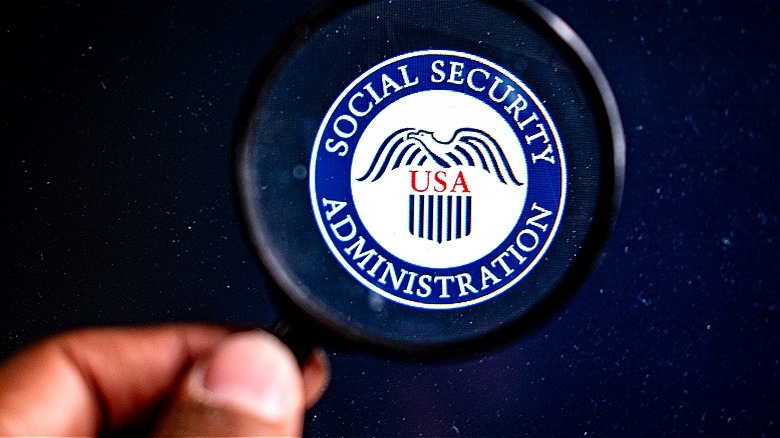When You Should Stop And Change Your Social Security Number Immediately
Over the course of a person's life, there are many important sets of digits assigned to them, from their phone and credit card number to their license plate. Yet there's one numerical identifier that comes before the rest: a Social Security number.
An individual's nine-digit SSN is issued at birth and eventually used to track their wages so that, at the age of 62, they can begin to collect Social Security benefits. Additionally, SSNs are typically needed when completing tax returns, opening a new credit card, and other actions that require strong proof of identification.
A person's SSN is meant to stay with them forever, yet sometimes, situations arise that prevent this from being possible. While the Social Security Administration doesn't issue new SSNs simply because one asks or because they lost their SSN card (you can request a replacement), there are several circumstances when a change would be granted.
Instances when it's recommended to change your SSN
Since people can take advantage of the Social Security system and request new Social Security numbers for nefarious reasons (to avoid bankruptcy, hide from the law, etc.), only those with a true need are granted a change.
Many who are issued a new SSN are victims of identity theft. From romance scams to scams targeted at senior citizens, fraudsters have crafty ways to obtain vital information, including the SSNs of unwitting targets. Oftentimes, such personal information is then made available on the dark web, making it practically impossible to tell who has access. The only way to start fresh in this situation is to immediately request a new SSN.
According to the Social Security Administration, the following are also eligible to be assigned a different number: those enduring harassment, abuse, or life endangerment who must establish a new identity for their safety and well-being; those with religious/cultural objections to digits in their SSN; those experiencing issues because their SSN is sequential to a family member's; and those who were accidentally assigned the same SSN as someone else.
If you or someone you know is dealing with domestic abuse, you can call the National Domestic Violence Hotline at 1−800−799−7233. You can also find more information, resources, and support at their website.
How to change your SSN
Requesting a new Social Security number is something that shouldn't be taken lightly and, therefore, isn't as easy as simply filling out a form online. An in-person appointment must be made at a local Social Security office (find one at ssa.gov or by calling 1-800-772-1213 or the TTY number 1-800-325-0778), and the following documents must be presented: evidence of abuse, identity theft or religious objections; current SSN; proof of U.S. citizenship or work-authorized immigration status; among others, all of which must be originals or certified copies.
If approved, an updated SSN card will be mailed as soon as possible. Once this happens, it's recommended that the person takes into consideration all that may be affected by the change and make updates accordingly. The Social Security Administration states, "Applying for a new number is a big decision. Your ability to interact with federal and state agencies, employers, and others may be affected. Your financial, medical, employment, and other records will be under your former SSN and name (if you change your name)." (Read about Social Security scams and how to spot them.)


